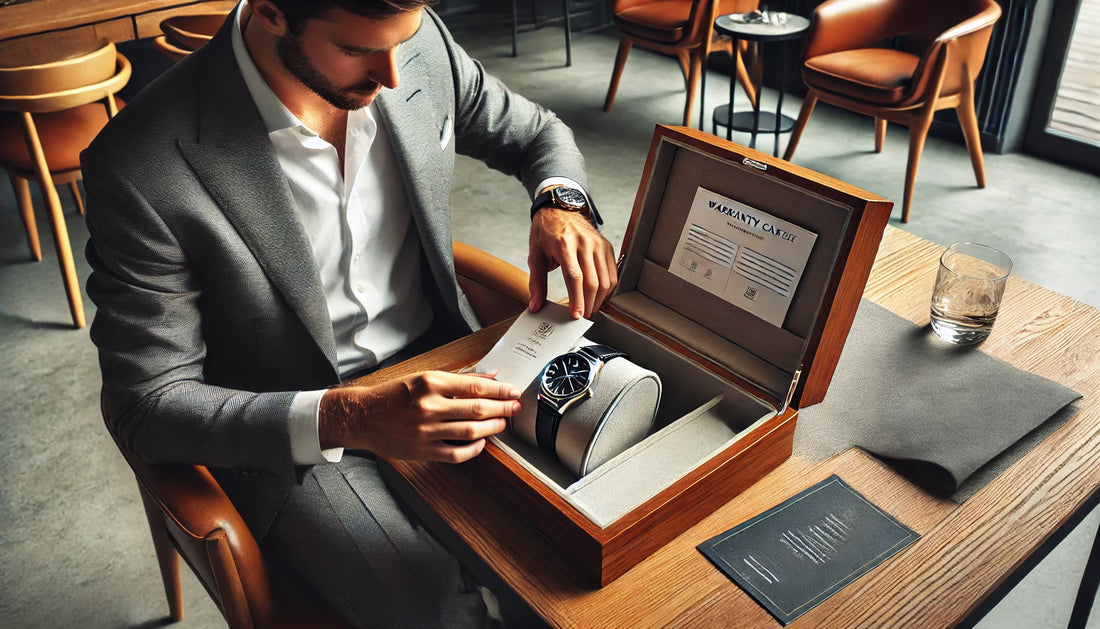
Why “Box and Papers” Matter: The Importance of Provenance
In the world of luxury goods—whether it’s a Rolex watch, a Montblanc pen, or a Louis Vuitton handbag—the concept of provenance plays a crucial role. For discerning buyers, especially those venturing into the pre-owned market, understanding the story behind an item is as essential as the item itself. Provenance isn’t just a buzzword; it’s a cornerstone of authenticity, value, and desirability. And when it comes to pre-owned luxury goods, the presence of original “box and papers” is often the key to unlocking the item’s full potential. Let’s explore why provenance matters so much and how it enhances the appeal of luxury items.
What Is Provenance?
Provenance refers to the documented history of an item—where it came from, who owned it, and its journey from the maker to its current owner. In the luxury market, provenance establishes the authenticity of a product and offers insights into its value. For instance:
- A watch with an unbroken chain of ownership and original documentation tells the story of its legacy.
- A luxury pen with receipts and certificates from its first purchase validates its craftsmanship.
- A handbag with its original tags and dust bag signals its origin and care.
Why Provenance Matters
1. Authenticity Assurance
Provenance is the ultimate defense against counterfeits. The pre-owned luxury market is rife with replicas and fakes, making authentication critical. Original box and papers, along with certificates of authenticity, are tangible proof that an item is genuine. For high-ticket items like a Patek Philippe watch or a Hermès Birkin bag, this assurance is invaluable.
2. Enhanced Value
In the luxury market, items with provenance—especially those with their original box and papers—command significantly higher prices. This is because they’re seen as more complete and closer to their original state. A Rolex Submariner with its box and papers might fetch 20–30% more than one without them, even if both are in identical condition.
3. Increased Collectability
Collectors prioritize items with a documented history because it preserves the item's narrative. Watches or handbags that include their box, papers, or even the original receipt are more desirable as they reflect careful ownership. For example:
Watches: Limited-edition models with provenance often become sought-after collectibles.
Handbags: Rare pieces, like a Chanel flap bag with an intact authenticity card, become prized investments.
Writing Instruments: A Montblanc pen with its original packaging and certificate may attract serious collectors over an identical model without them.
4. Future Resale Potential
Luxury goods are often purchased not just for personal enjoyment but also as investments. An item with full provenance retains a higher percentage of its value over time. Should you decide to resell, the inclusion of box and papers reassures the buyer of the item’s legitimacy, condition, and care, making it a more attractive proposition.
Why "Box and Papers" Are So Important
When purchasing pre-owned luxury goods, the term “box and papers” is often highlighted in listings. But why do these accessories matter so much?
1. Completeness
An item with its original box, warranty card, and manual feels more “whole.” For buyers, there’s a psychological satisfaction in acquiring not just the item but the full experience it originally offered.
2. Rarity and Care
Maintaining the original box and papers reflects how well the previous owner cared for the item. A luxury item stored in its original packaging is more likely to be in excellent condition, further boosting its appeal.
3. Authentication and Traceability
Box and papers are not just decorative; they help verify the origin and history of the item. They provide key details, such as:
- Serial numbers
- Original point of sale
- Manufacturing dates
For example, the warranty card of a watch often includes its serial number and the name of the authorized dealer, allowing potential buyers to cross-reference this information with the manufacturer.
How to Evaluate Provenance as a Buyer
When buying pre-owned luxury goods, here’s how to assess the importance of provenance:
1. Check for Documentation: Look for warranty cards, receipts, and certificates of authenticity.
2. Examine Packaging: Ensure the original box, dust bag, or case is included.
3. Cross-Reference Information: Match serial numbers or codes on the item with the documentation provided.
4. Research the Seller: Buy from reputable sellers or platforms that guarantee authenticity.
Provenance as a Mark of Prestige
For buyers of pre-owned luxury goods, provenance is more than a detail—it’s the hallmark of a wise purchase. The inclusion of box and papers is a tangible testament to an item’s authenticity, care, and history. These elements elevate the value, collectability, and desirability of luxury goods, ensuring that your investment not only brings personal joy but also retains its worth over time.
So, the next time you’re eyeing that pre-owned Rolex, Hermès Birkin, or Montblanc Meisterstück, remember: provenance is priceless. It’s not just about owning luxury; it’s about owning the story behind it.
